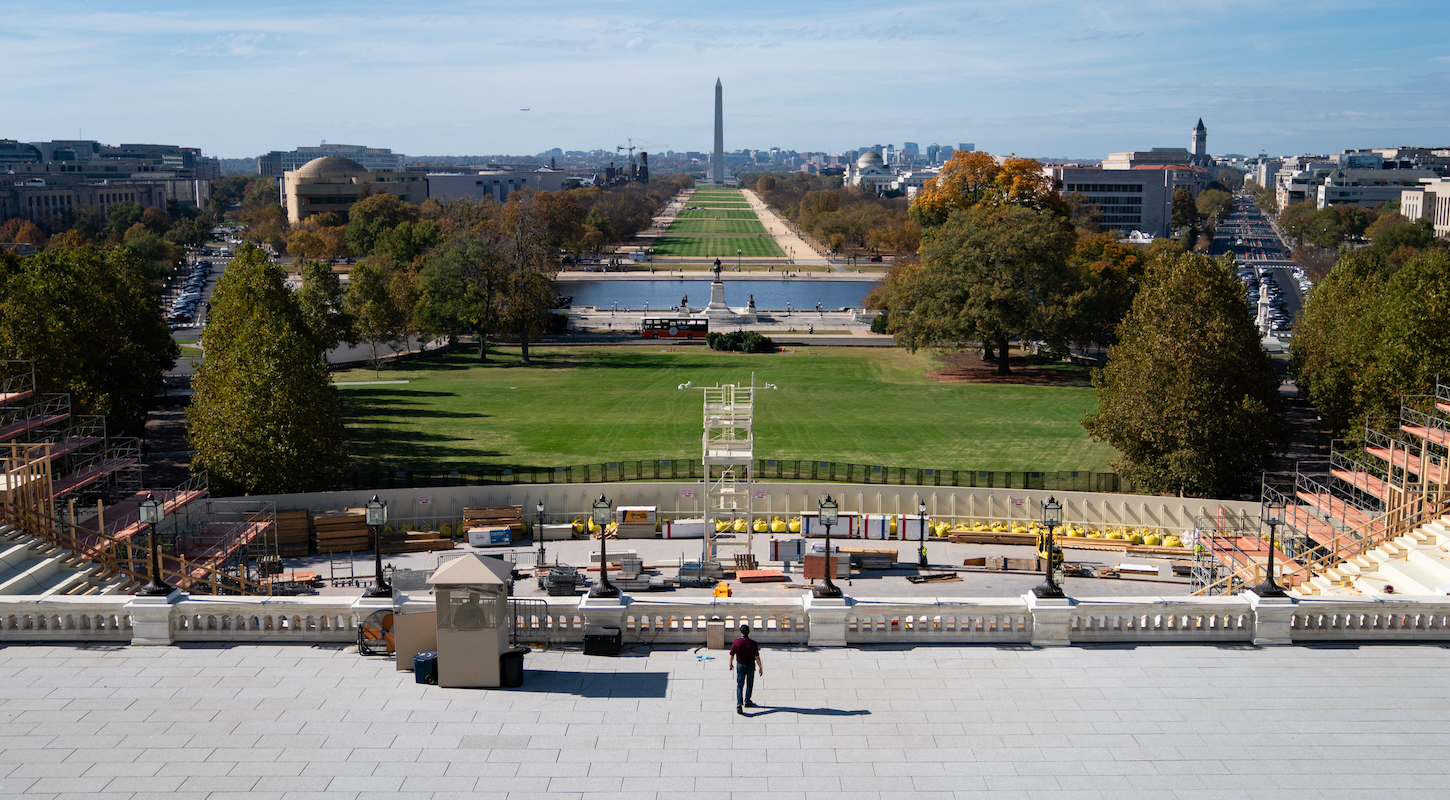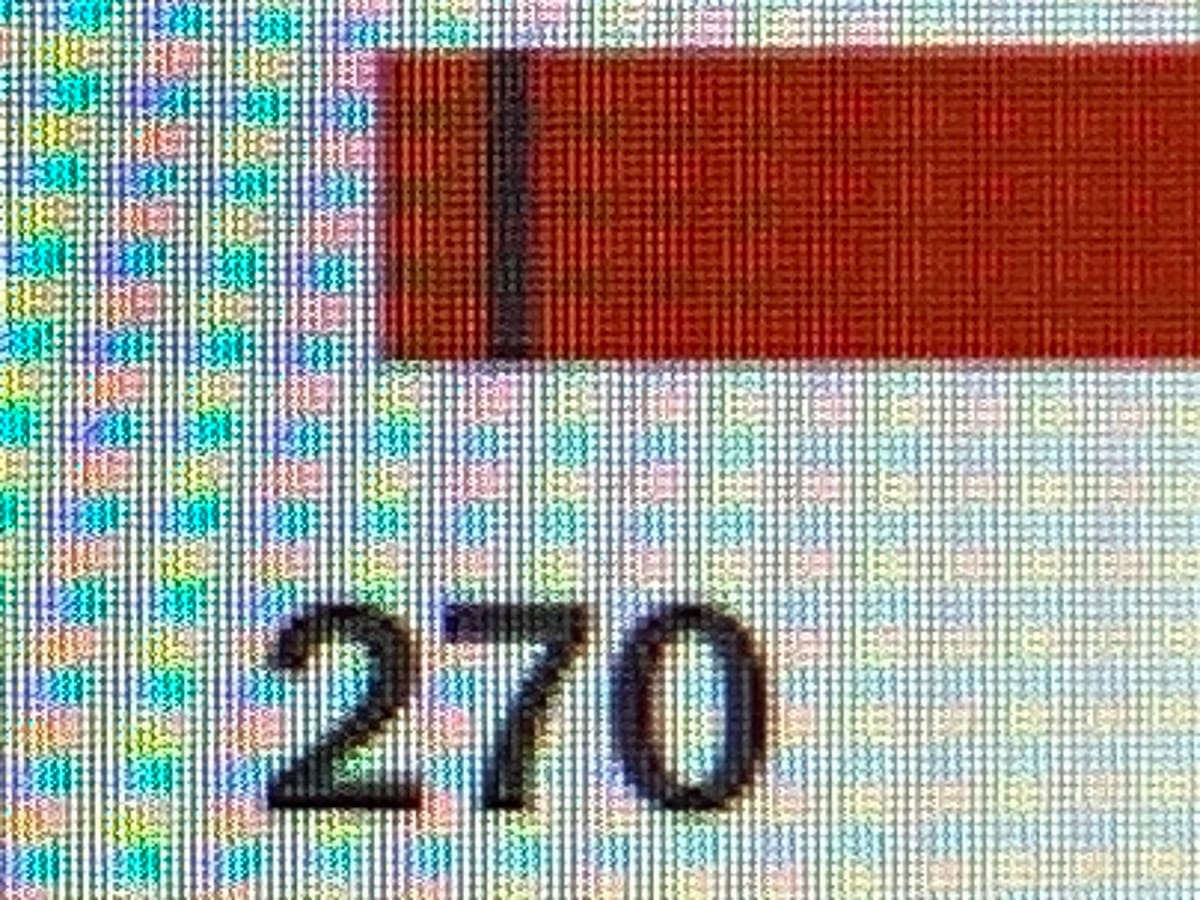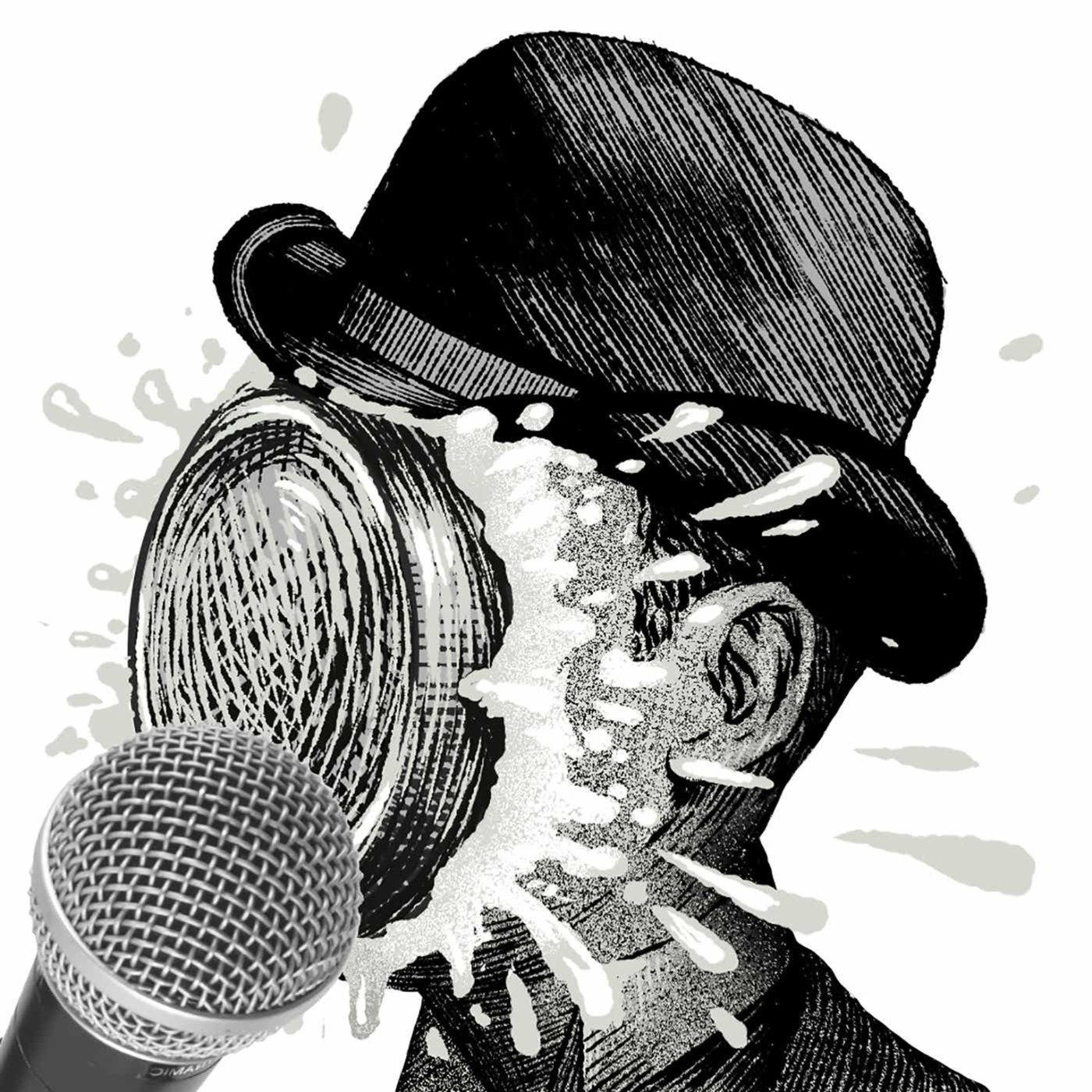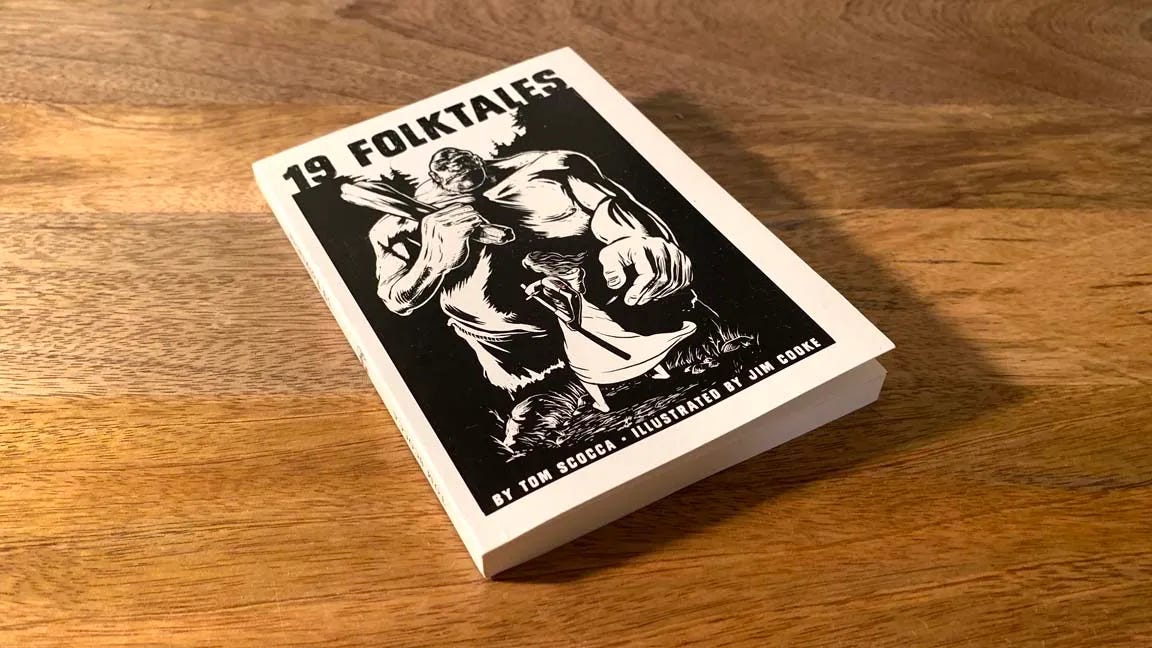Crime pays a presidential salary
Indignity Vol. 4, No. 195

POLITICS DEP'T.
Joe Biden lost America
THE VOTERS WERE the last line of defense, but finally they broke too. It's contemptible that the American electorate turned toward Donald Trump yesterday—after four years of corruption, abuse, and finally calamity under his presidency, and after four more years of Joe Biden's White House carefully and often expertly cleaning up the economic damage—and the result shows just how poisoned the country's information environment has become. People were voting to demand a stop to inflation that had already been brought under control, or to demand someone do something about a crime rate that was sharply in decline, or to demand they see less of the migrants they kept seeing on their TVs. They were driven to the polls in the name of nonsense, pounded into them by propaganda from billionaires.
What else were they supposed to do, though? Or how many times in a row were they supposed to do it? This election was lost when it became an election at all; that is, when one of the two major political parties put Donald Trump forward as one of the two possible candidates for president. It may have taken a flood of lies and partisan messaging to sell them Trump again, but it is difficult—even if morally and practically it's true—to keep telling the voters that they don't really have an option, that one of their choices is no choice at all. If Trump was so bad, why was he running?
Under the plain text of the constitution, Trump lost his eligibility for office on January 6, 2021. In a functioning democratic republic, he would have spent Election Day in 2024 in prison for trying to overthrow the government, or for taking bribes or for stealing classified documents or for any number of other crimes he committed in the open. But no one had the courage or the faith to enforce the law.
Joe Biden's historical legacy, which wavered so long in a superposition of success and failure, is settled now. He falls somewhere near the bottom of the second-worst tier of presidents, the ones who didn't harvest and serve up disaster—like Trump or Hoover—but who passively allowed disaster to ripen, when they could have rooted it out. He is to the collapse of the rule of law what Calvin Coolidge was to the Great Depression.
He did not do it, or fail to do it, alone. As January 6 turned into January 7, Nancy Pelosi—who had sworn an oath to "support and defend the Constitution of the United States against all enemies, foreign and domestic"—blanched at the idea of impeaching Trump for his insurrection on the spot, out of some sense of decorum or bipartisanship, and hatched a crackpot, sideways scheme to instead try to convince his cabinet to treat his crimes as mental unfitness and remove him under the 25th Amendment. Nor did she move to expel his co-conspirators in the Capitol from Congress on the spot. Time slipped away. By the time Pelosi realized that the 25th Amendment option wasn't happening and turned to impeachment, Mitch McConnell, who had sworn the same oath and who had acknowledged the seriousness of the coup, saw that Trump wasn't going to stop fighting and ducked out of convicting him in the Senate through a newly invented procedural loophole: Trump couldn't be removed from an office he'd already left, so somehow he couldn't be made ineligible to return, so—
So the job fell to Joe Biden, elected by 81 million people desperate to make Trump go away. Rather than treating the mob that had just attacked the Capitol as a security threat, to be swiftly and decisively neutralized, he chose to treat it a law enforcement case, and handed it off to Attorney General Merrick Garland—who in turn treated it less as a law enforcement case and more as a theatrical performance of lawfulness. Haste might look political, and the goal was not to stop Trump but to show him up by example, by refusing even the appearance of mixing politics and executive power.
The feds methodically tracked down and charged the vandals and rioters, month after month, without even a glance at the president who'd conspired to send them to vandalize and riot. It was as if they were rolling up low-level mafia thugs to build a RICO prosecution against the cagey and elusive higher ups, except in this case the crime boss had dictated the criminal orders into a microphone on live TV. Months turned into years, a whole other set of unrelated crimes came to light, and it still took a local prosecutor in Manhattan to file local charges against Trump before the Justice Department got up the nerve to move toward its own prosecutions.
By then it was too late. The independent Garland's independent special counsel, Jack Smith, found himself enmeshed in a judiciary full of Trump loyalists and Republican political operators, cooperating with Trump to draw out and delay things even further, as election season closed in. Trump's handbuilt Supreme Court majority took up his appeals and sat on them and then came up with a crushing theory of presidential immunity to make Smith rewrite his entire January 6 indictment. Judge Aileen Cannon, the Trump appointee handling his prosecution for stealing classified documents, decided to singehandedly cancel the special counsel laws, declaring Smith's entire position unconstitutional. Trump's sentencing in Manhattan, where a jury had gone ahead and found him guilty under New York State law of 34 felony counts of falsifying business records, got caught up in delays until the judge gave up and pushed it past Election Day.
All the while the Biden administration piously tried to hold Trump's crimes apart from politics, the political calendar kept turning in Trump's favor. The entire Supreme Court decided that Colorado could not rule Trump ineligible under the constitution's insurrection clause and remove him from the Super Tuesday ballot, with the five Trumpiest justices denying that the insurrection clause could be enforced at all without Congressional action, sending accountability looping all the way back to where it had died more than three years before.
As law enforcement went nowhere, Trump kept advancing toward the White House. Biden, having failed to stop Trump simply by beating him in 2020, chose to dig in for a rematch. Shaky with age and unable to speak clearly on camera anymore, battered by hostile coverage from pro-Trump media, he made it all worse: he looked like a loser, which made Trump, by elimination, seem plausibly like a winner again.
The coup had worked, after all, in slow motion. Donald Trump won the election yesterday, through balloting and counting. Before he could win an election, though, he had to be nominated, and before he could be nominated, his party and its supporting apparatus had to be brought in line behind him. Anyone who might resist or object was well aware of the mob he'd commanded, and which he might summon again, to the polls or elsewhere. Prominent Republicans announced their retirement or hired security details. The party's House majority scrambled to obey his orders.
Everyone in a position to stop Trump, from Joe Biden on down, was more afraid of getting in trouble than of rewarding the coup. In the sweep of the past four years, the only official who unquestionably saw what to do and did it was the police officer who shot Ashli Babbitt. A mob had fought its way through police lines, smashed into the Capitol building, and was beating at the doors of the House chamber. When they knocked out the window and started swarming through, the cop fired his gun. That was the reality, that was the response. The mob fell back. But there was only one of him. The mob found another way, and the mob kept coming.

SIDE PIECES DEP'T.

GIVEN A CHOICE between typing things and having to sit and feel things, I also wrote about the election for Defector, focusing on how bad events were last time around under Trump, and how it came to be that people thought it might be a good idea to go back:
One amazing fact about the 2024 presidential campaign was that not even once, as the political media earnestly pressed Kamala Harris about whether she was sincere in supporting Pennsylvania's fracking industry, did anyone ask Donald Trump what he would do if, as president in 2025, he were to learn about an outbreak of some new and deadly disease.
But the Biden administration and the press long ago established a consensus that there is nothing more that can be done about COVID, and that somehow got projected backward to the beginning of 2020, so that the most lethal and catastrophic failure of the Trump administration was erased from the record. There was never anything that could have been done about COVID; the fact that the president did nothing when the virus arrived, then spent weeks denying and downplaying the severity of what was happening, became a matter of simple misfortune, ruining an otherwise successful presidency.
With that, three years of corrupt flailing and one year of bottomless horror were transmuted, in the opinion polling, into that ineffable lost era of American greatness that Trump had been promising to bring back all along.

WEATHER REVIEWS
New York City, November 5, 2024
★★ The light was clear and the breeze was cool, but thick humidity made it inescapably dreadful. People wore jackets and sweaters as if they'd missed the forecast altogether, as if some law said that normal must be normal and November must be November. Cars stood grimy with the dust from the unending rainless days. Sweat started pouring underneath the mask on the subway. In the night, as the humidity kept rising, sweat would break out again.

EASY LISTENING DEP'T.
HERE IS TODAY'S Indignity Morning Podcast.

Click on this box to find the Indignity Morning Podcast archive.


SANDWICH RECIPES DEP'T.
WE PRESENT INSTRUCTIONS in aid of the assembly of a sandwich selected from L.M.S. Book of Recipes: Individual and Large Amounts for Home and School, by Lillian Massey School, edited by A.L. Laird and N.L. Pattinson, published in 1917, now in the Public Domain and available at archive.org for the delectation of all.
RAW BEEF SANDWICHES.
Scrape lean, raw beef to remove connective tissue; season with salt and celery salt, if desired; spread very thinly between thin slices of bread (bread may be buttered). Sandwiches may be slightly toasted, care being taken not to cook the meat.
If you decide to prepare and attempt to enjoy a sandwich inspired by this offering, be sure to send a picture to indignity@indignity.net.

MARKETING DEP'T.

We are down to FIVE REMAINING COPIES of the second printing of 19 Folktales, still available for gift-giving and personal perusal! The daylight is vanishing and so are these stories!










